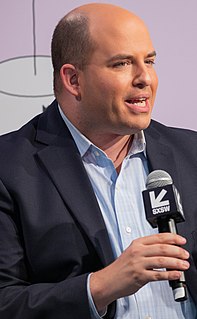A Quote by Dick Morris
We in politics are accustomed to seeing reality firsthand and then watching its distant cousin, events as portrayed by the media, unfold on our televisions. We know that what happened in Congress and what is reported to have taken place are two very different things. But that disjuncture, so familiar to politicians, is new to the viewing public. By seeing war and war coverage juxtaposed nightly on their screens, Americans have learned the crucial lesson: not to trust the news anchors.
Quote Topics
Accustomed
Anchors
Congress
Cousin
Coverage
Crucial
Different
Different Thing
Different Things
Distant
Events
Familiar
Firsthand
Happened
Know
Learned
Lesson
Media
New
News
News Anchors
Our
Place
Politicians
Politics
Portrayed
Public
Reality
Reported
Screens
Seeing
Taken
Then
Things
Trust
Two
Unfold
Very
Viewing
War
Watching
Related Quotes
after a generation or two of shedding the deliberate political encumbrances to war ... of dropping Congress from the equation altogether, of super-empowering the presidency with total war-making power and with secret new war-making resources that answer to no one but him, of insulating the public from not only the cost of war but sometimes even the knowledge that it's happened - war making has become almost an autonomous function of the American state. It never stops.
We are organising our enemies into a formidable force, we are The US public has turned against the war, the Republicans and Democrats have turned against the war. And so when the American public turns against the war and the Congress turns against the war, it suggests that Americans feel we cannot win that war in those conditions. So the Iraqi Commission says, "Well, we can't win this war militarily, we need to reassess potential allies." There's Syria, there's Iran.
Twenty-two percent of Americans say their primary news source is Fox News. It's divided our country in a way that we haven't been divided probably since the Civil War, and its empowered large corporations to get certain kinds of politicians and ideologues who are in the United State Congress elected -- the Tea Party ideologues who control the Republican Party.
Most things are forgotten over time. Even the war itself, the life-and-death struggle people went through, is now like something from the distant past. We're so caught up in our everyday lives that events of the past, like ancient stars that have burned out, are no longer in orbit around our minds. There are just too many things we have to think about every day, too many new things we have to learn. New styles, new information, new technology, new terminology ... But still, no matter how much time passes, no matter what takes place in the interim, there are some things we can never assign to oblivion, memories we can never rub away. They remain with us forever, like a touchstone. And for me, what happened in the woods that day is one of these.
Fox News is really two news networks. It's a center right news network that has good, solid, interesting coverage if you're watching Chris Wallace or the panel on 'Special Report' or anything like that. Then, it has what Hannity and others like him do, which is just a sort of tribal identity politics for older white people.


































